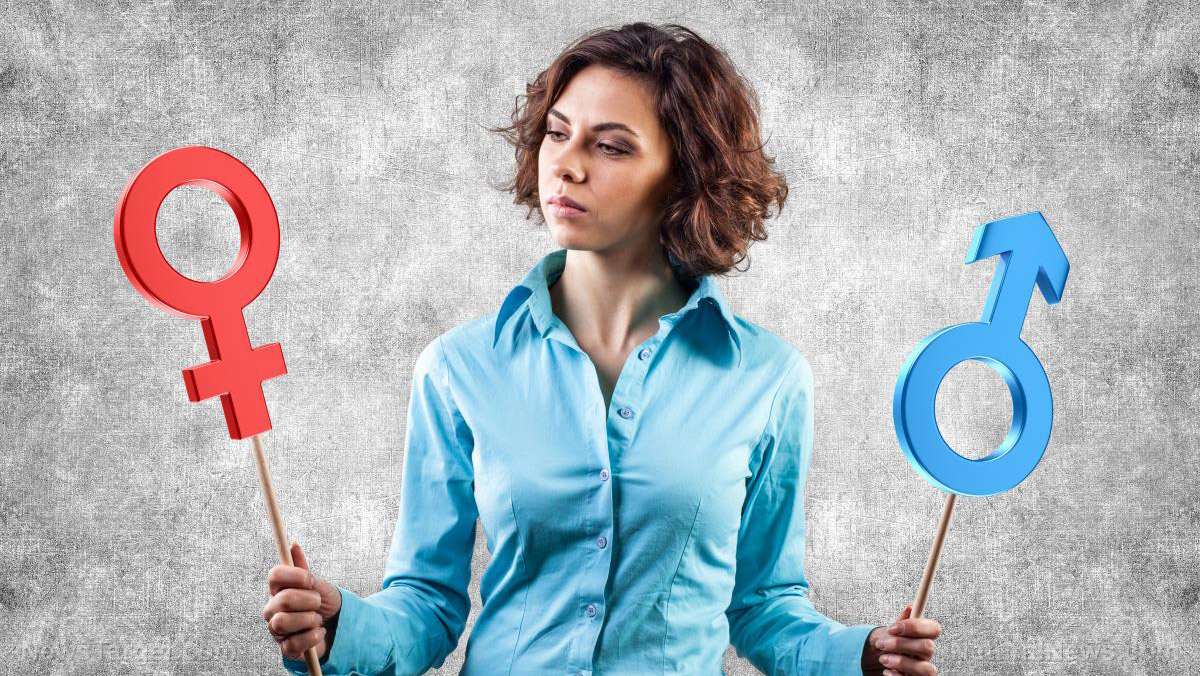The Olympics just abandoned all science, drops gender testing to allow MEN to compete as WOMEN in all events
07/19/2017 / By Robert Jonathan

The International Olympic Committee has suspended gender testing for the 2018 Olympic Games and perhaps permanently.
No such testing was conducted for the Rio Games last year either.
In July 2015, the Court of Arbitration for Sport put on hold a rule promulgated by the International Association of Athletics Federations (IAAF), the track-and-field governing body, that had established maximum testosterone levels for female competitors. Under the suspended rule, the maximum limit for women in internationally sanctioned athletic events was 10 nanomoles of testosterone per liter of blood. The CAS concluded more or less that the available data linking testosterone to enhanced female athletic performance needs more proof. (Related: Read more about gender issues at Womenshealth.news.)
Just a reminder, testosterone is the primary male sex hormone.
In its 161-page decision, the arbitration panel, which appears to be comprised of lawyers rather than scientists, wrote that “there is presently insufficient evidence about the degree of the advantage that androgen-sensitive hyperandrogenic females enjoy over non-hyperandrogenic females.”
The CAS decision was a win for Indian sprinter Dutee Chand who had been prohibited from competing because of high testosterone levels.
Pursuant to the provisional arbitration decision, the IAAF has to come up with evidence no later than this month to justify reinstating the rule, otherwise it’s apparently gone for good. Given societal trends in relation to gender identity, which may or may not line up with science, it seems likely where this is headed. “In February, the International Olympic Committee agreed to stop regulating women’s natural testosterone levels until the IAAF case was resolved,” The Daily Caller explained.
You may recall the headlines when South African athlete Caster Semenya won a gold medal in the women’s 800-meter race in Rio. The world-class runner is reportedly said to have an intersex condition, which Natural News described in an unrelated context as those with chromosomes, genitalia, or even just characteristics that resemble both the male and female sex.
“Semenya’s intersex condition causes her to produce more testosterone (hyperandrogenism) than most women, prompting questions about whether she had an unfair biological advantage,” The Daily Caller added.
According to Sports Illustrated, which speculated that Semenya may have been taking meds to suppress her testosterone levels prior to the rule change, the alleged hyperandrogenic condition in which the body produces higher levels of the hormone “builds greater muscle mass and allows her to run faster.”
Separately, Natural News perhaps ironically reported a few years ago that testosterone levels were declining among men of all age groups, a phenomenon that can contribute to prostate and testicular cancer, erectile dysfunction, poor muscle mass, fatigue, insomnia, and memory/concentration problems.
Sources include:
Tagged Under: Court of Arbitration for Sport, Gender identity, hyperandrogenism, International Association of Athletics Federations, intersex, Olympic Games, Olympics, Testosterone, transgenderism




















